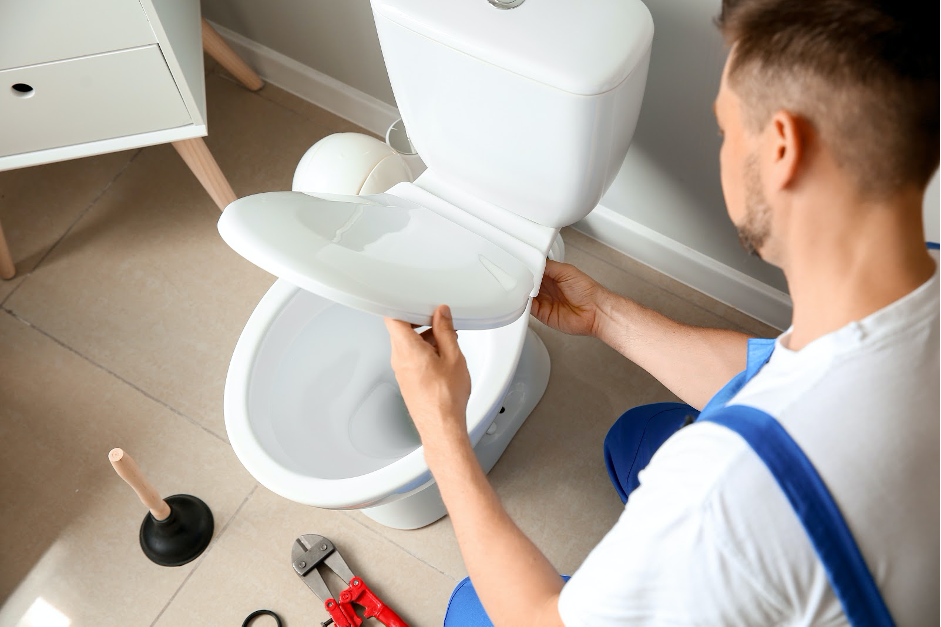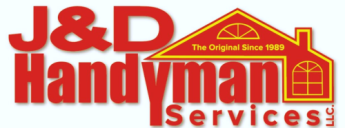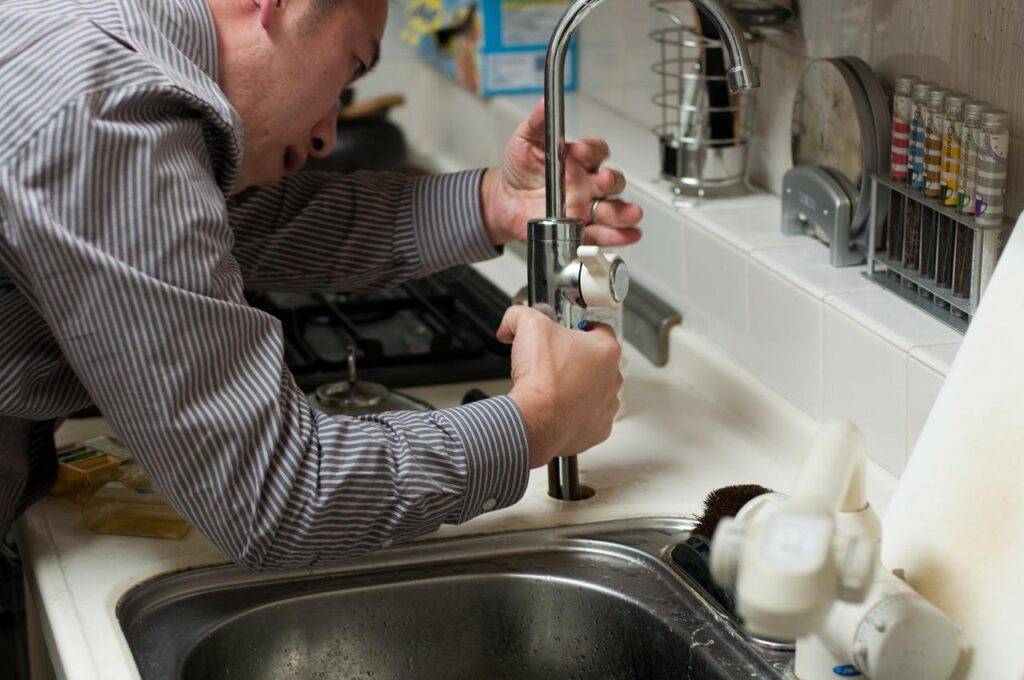Are Home Repairs And Maintenance Tax Deductible
Introduction
As homeowners, we are often faced with the responsibility of maintaining and repairing our homes. From fixing leaky faucets to replacing worn-out shingles, home repairs and maintenance tasks are a constant part of homeownership. However, what many homeowners may not realize is that some of these expenses can potentially be tax deductible.
Definition of home repairs and maintenance: Home repairs refer to the necessary fixes or replacements required to restore the functionality or structural integrity of a property. These repairs typically address issues such as plumbing problems, electrical malfunctions, or broken appliances.
On the other hand, home maintenance encompasses routine tasks aimed at preventing damage and ensuring the overall upkeep of a property. This includes activities like painting walls, cleaning gutters, or servicing heating and cooling systems.
Importance of understanding tax deductions for homeowners
Gaining a clear understanding of tax deductions related to home repairs and maintenance is crucial for homeowners for several reasons. Firstly, it allows them to make informed decisions when prioritizing repair projects or planning their budgets effectively. By knowing which expenses may be eligible for deductions, homeowners can strategize their repair efforts in a way that brings maximum financial benefits.
Secondly, understanding tax deductions helps homeowners navigate through complicated tax codes and regulations more confidently. Tax laws can be complex and subject to changes over time; therefore, keeping oneself informed about the deductibility rules empowers individuals to properly comply with legal requirements while minimizing their overall tax liability.
Being aware of potential tax deductions encourages proactive behavior when it comes to maintaining one’s property. By incentivizing homeowners through potential savings on taxes, they are more likely to invest in regular maintenance tasks and timely repairs – ultimately preserving the value of their homes in both financial terms and overall quality.
Overview of Tax Deductions for Homeowners
Understanding Tax Deductions and their Benefits
Tax deductions are a valuable aspect of the tax system that allows homeowners to reduce their taxable income, resulting in potential savings on their overall tax bill. By utilizing these deductions effectively, homeowners can maximize their financial benefits and retain more of their hard-earned money. The primary purpose of tax deductions is to provide incentives for certain behaviors or expenditures that benefit society as a whole. In the case of homeownership, tax deductions encourage individuals to invest in real estate, which stimulates the economy and fosters stable communities.
The benefits of tax deductions for homeowners are manifold. Firstly, they help alleviate the financial burden associated with owning a home by offsetting some of the costs incurred throughout the year.
This can be especially beneficial for those with limited resources or facing economic challenges. Additionally, tax deductions provide an opportunity for homeowners to improve their financial situation by reducing their taxable income and potentially moving into lower tax brackets. This can result in substantial savings when filing annual tax returns. Ultimately, understanding and leveraging these deductions can empower homeowners to make informed decisions about their property investments while effectively managing their financial obligations.
How Long Do Toilet Seals Last? J&D Handyman Tip
Of The Day!

- Toilet seals typically last anywhere from five to ten years, depending on various factors. The lifespan of a toilet seal heavily depends on the quality of the seal, frequency of use, and maintenance. A well-maintained toilet seal can endure for at least five years, while higher-quality seals may last up to a decade or more. Regularly cleaning the toilet and avoiding harsh chemicals helps preserve the seal’s integrity.
- Additionally, factors such as water hardness, temperature fluctuations, and the weight of the toilet bowl and tank can impact the seal’s longevity.
- Performing routine inspections for any signs of wear or leakage is essential to ensure the seal remains effective. Ultimately, proper care and regular maintenance play key roles in extending the lifespan of a toilet seal.
Different Types of Tax Deductions Available to Homeowners
There are several types of tax deductions available specifically to homeowners that aim to acknowledge both regular expenses associated with maintaining a home as well as larger investments made towards improving its value or energy efficiency. The most common type is the mortgage interest deduction (MID), which allows homeowners to deduct interest paid on mortgages obtained to purchase or improve a primary residence or second home. This deduction is one of the most significant benefits offered by the tax code, as it helps reduce the overall cost of borrowing and encourages investment in real estate. Another important deduction is property taxes paid on owned properties. Homeowners have the opportunity to deduct state and local property taxes, which can provide significant relief, particularly in areas with high property tax rates. This deduction recognizes the financial burden associated with property ownership and aims to ease the taxpayer’s overall liability. Furthermore, certain home improvements that contribute to energy efficiency may qualify for tax credits or deductions.
For instance, installing solar panels or upgrading heating and cooling systems to meet specific energy-saving standards can result in substantial tax benefits. These deductions not only help homeowners reduce their energy costs but also incentivize environmentally conscious choices that benefit both individuals and society as a whole.
Understanding the various types of tax deductions available to homeowners is crucial for maximizing financial benefits. By taking advantage of mortgage interest deductions, property tax deductions, and incentives for energy-efficient improvements, homeowners can significantly reduce their taxable income while simultaneously investing in their homes and promoting a sustainable future.
Home Repairs vs. Home Improvements
Clear Distinction between Repairs and Improvements
When it comes to understanding tax deductions for homeowners, it is crucial to distinguish between home repairs and home improvements. In simple terms, a repair refers to fixing or restoring something that is broken or damaged, aiming to bring it back to its original condition.
On the other hand, an improvement refers to making changes or additions that enhance the value, functionality, or appearance of the property. The Internal Revenue Service (IRS) provides some guidelines to help homeowners determine whether an expense qualifies as a repair or an improvement for tax purposes.
Generally, a repair is considered deductible if it restores the property’s efficiency or functionality without significantly increasing its value. Conversely, an improvement is not immediately deductible because it adds value to the property and may have longer-term benefits.
Examples of Common Repairs and Improvements in a Home
To illustrate the distinction between repairs and improvements further, let us consider some common scenarios found in homes.
1. Repair: Patching a leaky roof – If your roof develops a leak due to wear and tear over time, hiring professionals to fix the problem would be classified as a repair. It aims at restoring your roof’s function and preventing further damage caused by water infiltration.
2.Improvement: Adding solar panels – Installing solar panels on your roof is generally considered an improvement since it increases the value of your property while providing long-term energy-saving benefits.
The cost of installation may not be immediately deductible but can be recovered through energy tax credits over time.
3.Repair: Fixing a broken window pane – When you replace a broken window pane with one that matches its original design and functionality, it qualifies as a repair expense since it rectifies damage without enhancing value.
4.Improvement: Kitchen renovation – If you decide to remodel your kitchen by installing new cabinets, countertops, and appliances, it would be considered an improvement. While it adds value to your home and enhances its appearance and functionality, these expenses are generally not deductible as immediate repairs.
Understanding the distinction between repairs and improvements is crucial when determining the tax deductibility of expenses related to maintaining or enhancing your home. It is essential to keep accurate records of both repair and improvement costs as they may have different consequences for your tax deductions.
Tax Deductibility of Home Repairs
When it comes to home repairs, it is essential to understand which expenses can be deducted on your taxes and which cannot. As a general rule, most home repair expenses are considered non-deductible. The Internal Revenue Service (IRS) categorizes these expenses as part of the regular maintenance and upkeep of a home, which is the responsibility of the homeowner. Non-deductible repairs include those that are purely cosmetic or aimed at routine maintenance. Non-deductible repairs refer to expenses incurred solely for aesthetic purposes or to maintain the proper functioning of existing structures. Examples of cosmetic repairs that cannot be deducted include repainting walls, replacing outdated fixtures purely for visual appeal, or remodeling rooms without any underlying issues. Routine maintenance tasks like regular cleaning, fixing leaks in faucets or pipes, or replacing worn-out carpets also fall into this category.
Exceptions: Deductible Repairs
While most home repairs do not qualify for tax deductions, certain exceptions exist where deductible repairs can provide homeowners with some relief. These exceptions arise when the repair expenses are necessary due to specific circumstances such as casualty losses or energy-efficient upgrades. 1. Repairs due to casualty losses: If your property suffers damage from an unexpected event like fire, flood, vandalism, or natural disasters like hurricanes or earthquakes, you may be eligible for deducting the costs associated with repairing the damage caused by these events.
However, it’s important to note that insurance reimbursements received should first be subtracted from such deductions. 2. Energy-efficient upgrades: In an effort to promote energy conservation and environmental sustainability practices in households across the nation, certain energy-efficient upgrades may qualify for tax deductions under federal programs such as the Residential Renewable Energy Tax Credit.
For instance, if you install solar panels, geothermal heat pumps, or energy-efficient windows, doors, or insulation systems in your home, you may be eligible for deductions on the associated repair expenses. Understanding the distinction between deductible and non-deductible repairs can significantly impact your tax liability as a homeowner.
While most repair costs fall under the category of non-deductible expenses due to their routine nature or cosmetic purposes, exceptions do exist for repairs resulting from casualty losses or those related to energy-efficient upgrades. It is always advisable to consult with a tax professional or refer to the IRS guidelines to ensure you accurately identify and claim applicable deductions for your home repair expenses.
Tax Deductibility of Home Maintenance Expenses
Understanding maintenance expenses
When it comes to maintaining a home, there are numerous routine tasks that homeowners undertake to keep their property in good condition. Routine maintenance refers to the regular upkeep necessary to prevent deterioration and ensure the continued functionality and safety of a home. It includes activities such as lawn care, gutter cleaning, pest control, HVAC system maintenance, and exterior painting. These tasks are essential for preserving the value and longevity of a property.
Examples: lawn care, gutter cleaning
Lawn care involves activities such as mowing the grass, fertilizing, aerating, and watering regularly. This regular upkeep not only keeps the yard looking visually appealing but also prevents weed growth and maintains a healthy turf. Another common routine maintenance task is gutter cleaning. Gutters play a vital role in directing rainwater away from the house’s foundation and preventing water damage. Regularly removing leaves, debris, and other obstructions from gutters ensures they function properly and do not cause water-related issues like leaks or dampness in basements or walls.
Tax deductibility limitations on maintenance expenses
While routine maintenance is crucial for keeping a home well-maintained, unfortunately, these expenses are generally not tax-deductible for homeowners. According to current tax regulations in most countries (including the United States), expenses related to general home maintenance cannot be claimed as deductions on your tax return.
This means that even if you spend a significant amount on routine tasks like lawn care or gutter cleaning throughout the year, you cannot deduct those costs from your taxable income. However, it’s important to consult with a tax professional or refer to specific tax guidelines applicable in your jurisdiction since rules can vary depending on local regulations.
Limits on deducting regular maintenance costs
It is worth noting that while routine maintenance expenses are generally not tax-deductible, there may be instances where maintenance costs become eligible for deductions. For example, if a particular maintenance task is required as a result of a casualty loss, such as damage from a storm or natural disaster, it may be considered an eligible deduction.
Furthermore, certain energy-efficient upgrades or improvements made to your home might qualify for tax credits rather than deductions. These credits can help offset the costs of making environmentally-friendly upgrades to your property.
However, specific criteria and limitations apply to these types of deductions and should be evaluated in accordance with relevant tax regulations. Routine home maintenance expenses like lawn care and gutter cleaning are typically not tax-deductible. However, it is crucial to stay informed about any potential changes in tax laws that might impact the deductibility of these expenses. Seeking professional advice from a certified tax expert will ensure accurate interpretation and application of the deductions available to homeowners.
Special Cases: Home Office and Rental Properties
Deductibility rules for home office repairs and maintenance
The deductibility of home office repairs and maintenance expenses is a topic that often confuses homeowners who utilize part of their residence for business purposes. To qualify for deductions, the repairs and maintenance must be directly related to the portion of the home used as a dedicated workspace. The Internal Revenue Service (IRS) establishes specific criteria to determine if these expenses are eligible for tax deductions. One important requirement is that the home office must be used exclusively for business activities. This means that any repair or maintenance cost incurred should solely benefit the designated workspace and not other areas of the house.
For instance, if you renovate your kitchen, only repairs attributable to the portion serving as your office would qualify. Additionally, it’s crucial to keep accurate records detailing how much time you spend in your home office versus personal use, as this will help determine the proportion of repair or maintenance costs eligible for deduction.
Requirements for claiming home office deductions:
– The space must be used regularly and exclusively for conducting business. – The area should be your principal place of business or where you meet clients/customers. – You need to show that your home office is essential for performing administrative or managerial tasks.
Examples: repair costs related to the home office:
- Repainting: If you decide to freshen up your whole house with a new coat of paint, only repainting expenses directly associated with your home office would be deductible.
- Electrical repairs: Suppose there’s an issue with faulty wiring in your house which impacts both personal areas and your designated workspace. In this case, only the proportionate repair costs related explicitly to the home office could qualify as deductible expenses.
- Carpet replacement: If you choose to install new carpeting throughout your home, you can only deduct the expenses incurred in the area solely used as your office.
Deductions for rental property repairs and maintenance
For individuals who own rental properties, understanding the rules and guidelines regarding deductible repairs and maintenance expenses is crucial. The IRS has specific regulations in place to determine what qualifies as a deductible expense for rental properties. These rules are designed to ensure that landlords can accurately claim deductions while also preventing abuse of these provisions.
Rules specific to rental properties:
– Repairs are generally considered ordinary and necessary expenses for maintaining a rental property’s condition. – Deductible repair costs should be directly related to the property’s upkeep rather than improvements that enhance its value. – Expenses must be incurred throughout the tax year they were paid or accrued.
Examples: deductible repair costs in rental properties:
- Plumbing repairs: If you hire a professional plumber to fix a leaky pipe within one of your rental units, this cost would typically qualify as a deductible expense since it is necessary for maintaining habitability.
- Painting: Repainting the exterior of your rental property due to wear and tear or weather damage can generally be deducted as a repair expense.
- Appliance repairs/replacements: If you repair or replace appliances like refrigerators, stoves, or dishwashers within your rented units, those expenses are usually considered deductible repairs since they maintain the functionality of the property.
Understanding these special cases – home office deductions and deductions for rental property – allows homeowners and landlords alike to take advantage of potential tax benefits while ensuring compliance with IRS regulations. It is essential to keep thorough records of all relevant expenses and consult with a tax professional familiar with your specific circumstances to maximize deductions within legal boundaries.
Documentation Requirements
Importance of proper documentation
When it comes to claiming tax deductions for home repairs and maintenance, proper documentation is paramount. The Internal Revenue Service (IRS) requires homeowners to maintain accurate records and provide supporting documents to substantiate their claimed deductions. Without adequate documentation, deductions may be disallowed, resulting in potential penalties or increased tax liability. Proper documentation not only ensures compliance with tax laws but also serves as evidence of the expenses incurred, providing a clear trail for audit purposes.
To understand the importance of proper documentation, consider this scenario: Suppose you undertake a major repair on your roof due to storm damage. Without documenting the repair costs and retaining relevant invoices or receipts from contractors or suppliers, you would be unable to prove the expense if audited by the IRS.
This could lead to denial of your deduction claim, leading to potential financial repercussions. Therefore, maintaining thorough and organized records is essential for ensuring accurate deduction claims and peace of mind during tax season.
Types of documents needed to support deductions
To support your claim for tax deductions related to home repairs and maintenance expenses, it is crucial to possess appropriate documentation that demonstrates both the nature of the expense and its associated cost. Here are some examples of essential documents:
- Invoices and receipts: When engaging professionals or contractors for repairs or maintenance tasks, always obtain detailed invoices that specify the type of service performed along with associated costs. These invoices should clearly show itemized expenses such as labor charges or materials used.
- Contracts or agreements: If you have entered into contracts or agreements regarding major repairs or renovations in your home, retaining copies is essential. These documents can serve as evidence not only for verifying deductible expenses but also for establishing eligibility based on criteria such as casualty losses.
- Before-and-after photographs: In certain cases where visual evidence becomes important—such as after a fire or natural disaster—before—and—after photographs can support your claim. These photographs provide a clear record of the damage incurred and the subsequent repairs carried out.
- Maintenance logs: For routine maintenance tasks like cleaning gutters or servicing HVAC systems, maintaining a log that records the date, nature of the task, and any associated expenses would be beneficial. This log can demonstrate your commitment to regular upkeep and help substantiate deductions for these maintenance costs.
By diligently collecting and organizing these types of documents, you are better equipped to provide evidence of your expenditures on home repairs and maintenance. This not only minimizes the risk of deductions being disallowed but also provides a sense of confidence in claiming tax benefits that you are entitled to as a responsible homeowner.
Consulting Tax Pro’s
The Importance of Consulting a Tax Professional
When it comes to navigating the complexities of tax deductions for home repairs and maintenance, it is always wise to consult a tax professional. While this article provides an overview of the topic, every individual’s tax situation is unique, and seeking expert advice can help ensure that you maximize your deductions while staying compliant with tax regulations.
Benefits of Seeking Professional Guidance
A qualified tax professional can provide personalized guidance based on your specific circumstances. They have extensive knowledge of current tax laws and regulations, staying up-to-date with any changes that may affect your deductibility options. By consulting an expert, you can gain insights into potential deductions that you may have overlooked or were unaware of, ultimately saving you money in taxes.
The Value of Peace of Mind
Engaging a professional also offers peace of mind by minimizing the risk of errors or omissions on your tax return. Their expertise ensures accuracy in claiming deductions for home repairs and maintenance, reducing the likelihood of audits or penalties from the IRS. Additionally, should you receive any inquiries or notices from the IRS regarding your deductions, having a qualified professional by your side will give you confidence in responding effectively and efficiently.
Conclusion
Understanding the tax deductibility rules for home repairs and maintenance is crucial for homeowners looking to minimize their overall expenses. While some repairs may not be eligible for deductions due to their nature as routine maintenance or cosmetic enhancements, there are exceptions for certain types of necessary repairs caused by casualty losses or energy-efficient upgrades.
To navigate this complex landscape successfully and ensure compliance with ever-evolving regulations, it is advisable to seek guidance from a qualified tax professional. Their expertise will enable you to optimize your deductions while avoiding common pitfalls that could lead to penalties or audits.
By taking advantage of available deductibility options and consulting with a tax professional, you can confidently claim deductions for eligible repairs and maintenance expenses, potentially reducing your tax burden and freeing up resources for other essential aspects of homeownership. Embracing this knowledge empowers you to make informed decisions about managing your home while keeping your financial well-being intact.





